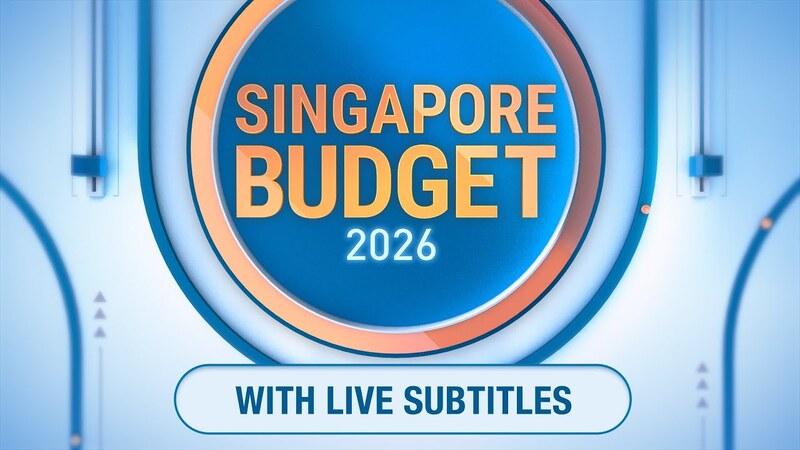The Future of HR in Singapore: How AI Is Transforming Workforce Management
Artificial Intelligence (AI) is no longer just a buzzword — it’s a game-changer for workforce management and the future of jobs in Singapore. From hiring and employee engagement to productivity and career development, AI is reshaping the HR landscape faster than ever.
With Singapore ranking second globally in AI readiness, and projections showing that AI could add nearly US$1 trillion to Southeast Asia’s economy by 2030, both employers and workers need to understand what this shift means for them.
Why AI Matters for HR and Workforce Management
AI adoption is accelerating across industries, and HR is one of the biggest beneficiaries. Here’s how AI is changing the game:
1. Smarter Recruitment – AI-powered platforms can screen CVs, assess skills, and match candidates to roles more effectively than traditional methods. This reduces bias, shortens hiring cycles, and improves quality of hire.
2. Predictive Analytics – Companies can now use AI to forecast workforce needs, anticipate turnover risks, and identify skill gaps — enabling proactive talent planning.
3. Employee Engagement & Retention – AI-driven tools can measure employee sentiment, predict burnout, and recommend personalised development plans.
4. Upskilling & Reskilling – AI tailors learning experiences to individual employees, helping mid-career professionals and younger workers alike stay relevant in fast-changing industries.
AI’s Economic Impact in Singapore & Southeast Asia
- A report estimates that AI adoption could add nearly US$1 trillion to Southeast Asia’s GDP by 2030.
- Singapore, with its strong digital infrastructure and government initiatives, is at the forefront of this transformation.
- According to global benchmarks, Singapore ranks second in AI readiness worldwide, just behind the United States.
For Singapore workers, this means more opportunities in AI-driven roles — from data analytics and digital transformation to AI ethics and governance. For companies, it means being able to leverage AI to improve efficiency, reduce costs, and create competitive advantages.
Will AI Create or Take Away Jobs?
One of the biggest questions workers ask is whether AI will replace them. The truth is more nuanced:
- AI will automate repetitive tasks, especially in roles like administration, basic accounting, and routine customer service.
- New jobs will be created in fields like AI development, machine learning operations, data analysis, and AI policy.
- Existing jobs will evolve, requiring workers to adapt and upskill to complement AI rather than compete with it.
In fact, studies suggest that AI will be a net creator of jobs in Singapore, particularly in technology, finance, and healthcare sectors.
What Employers Should Do
For companies, the key to success is adopting AI responsibly while ensuring human talent remains at the centre. Employers should:
1. Invest in AI tools that enhance rather than replace human decision-making.
2. Support employees with continuous learning opportunities.
3. Build a workplace culture that embraces innovation while addressing concerns about fairness, transparency, and job security.
What Workers Should Do
For professionals, the future is not about competing with AI, but working alongside it. To stay relevant:
- Learn AI literacy – Understand the basics of how AI works and how it applies to your industry.
- Upskill in high-demand areas – Data analytics, cybersecurity, digital transformation, and AI ethics.
- Stay adaptable – Be open to career shifts and embrace lifelong learning.
Frequently Asked Questions (FAQ): AI and the Future of Work in Singapore
Q1: Will AI take over all jobs in Singapore?
No. AI will automate certain tasks, but many jobs will evolve rather than disappear. New opportunities will also emerge in tech-driven fields.
Q2: Which sectors will benefit most from AI?
Finance, healthcare, manufacturing, logistics, and HR are among the sectors set to gain the most from AI adoption.
Q3: How can employers prepare for AI adoption?
By investing in AI responsibly, providing upskilling opportunities, and ensuring AI tools are used ethically.
Q4: What should workers focus on?
Continuous learning, digital skills, and adaptability. Workers who can combine domain expertise with AI literacy will thrive.
Conclusion: AI as a Partner, Not a Replacement
AI is not the end of human work — it’s the beginning of a new partnership. For Singapore, the combination of government support, global AI readiness, and strong workforce adaptability puts us in a prime position to lead the way.
For companies, this is a chance to reimagine workforce management. For workers, it’s an opportunity to future-proof careers and stay ahead in an AI-driven economy.
The future of HR in Singapore is human — powered by AI.
🔹 Looking for AI-ready talent to drive your business forward?
Connect with Reeracoen today
🔹 Ready to explore your next career move in an AI-driven economy?
Browse opportunities here
Disclaimer:
The information provided in our blog articles is intended for general informational purposes only. It is not a substitute for professional advice and should not be relied upon as such.
While we strive to provide accurate and up-to-date information, the ever-evolving nature of certain topics may result in content becoming outdated or inaccurate over time. Therefore, we recommend consulting with qualified professionals or experts in the respective fields for specific advice or guidance. Any actions taken based on the information contained in our blog articles are solely at the reader's discretion and risk. We do not assume any responsibility or liability for any loss, damage, or adverse consequences incurred as a result of such actions.
We may occasionally provide links to external websites or resources for further information or reference. These links are provided for convenience and do not imply endorsement or responsibility for the content or accuracy of these external sources. Our blog articles may also include personal opinions, views, or interpretations of the authors, which do not necessarily reflect the views of our organisation as a whole. We encourage readers to verify the accuracy and relevance of information presented in our blog articles and to seek professional advice when needed. Your use of this website and its content constitutes acceptance of this disclaimer.
References





